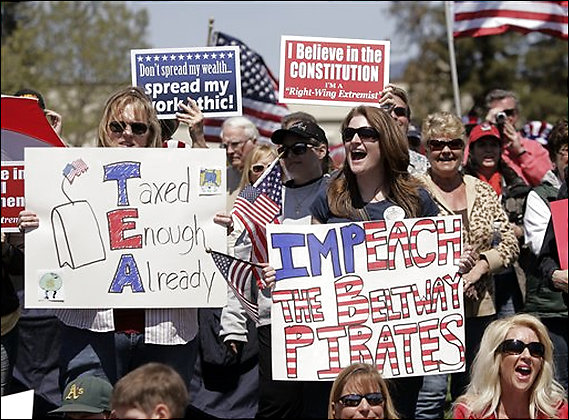The following is a complete list of new tax hikes from the senate health care bill:
Employer Mandate Tax (Page 348/Sec. 1513/$28 bil): If an employer does not offer health coverage, and at least one employee qualifies for a health tax credit, the employer must pay an additional non-deductible tax of $750 for all full-time employees. Applies to all employers with 50 or more employees.
If the employer requires a waiting period to enroll in coverage of 30-60 days, there is a $400 tax per employee ($600 if the period is 60 days or longer).
Excise Tax on Comprehensive Health Insurance Plans (Page 1979/Sec. 9001/$149.1 bil): Starting in 2013, new 40 percent excise tax on “Cadillac” health insurance plans ($8500 single/$23,000 family). Higher threshold ($9850 single/$26,000 family) for early retirees and high-risk professions. CPI +1 percentage point indexed.
From 2013-2015, the 17 highest-cost states are 120% of this level.
Employer Reporting of Insurance on W-2 (Page 1996/Sec. 9002/Min$): Preamble to taxing health benefits on individual tax returns.
Medicine Cabinet Tax (Page 1997/Sec. 9003/$5 bil): No longer allowable to use health savings account (HSA), flexible spending account (FSA), or health reimbursement (HRA) pre-tax dollars to purchase non-prescription, over-the-counter medicines (except insulin)
HSA Withdrawal Tax Hike (Page 1998/Sec. 9004/$1.3 bil): Increases additional tax on non-medical early withdrawals from an HSA from 10 to 20 percent, disadvantaging them relative to IRAs and other tax-advantaged accounts, which remain at 10 percent.
FSA Cap (Page 1999/Sec. 9005/$14.6 bil): Imposes cap on FSAs of $2500 (now unlimited).
Corporate 1099-MISC Information Reporting (Page 1999/Sec. 9006/$17.1 bil): Requires businesses to send 1099-MISC information tax forms to corporations (currently limited to individuals), a huge compliance burden for small employers
Excise Tax on Charitable Hospitals (page 2001/Sec. 9007/Min$): $50,000 per hospital if they fail to meet new "community health assessment needs," "financial assistance," and "billing and collection" rules set by HHS.
Tax on Innovator Drug Companies (Page 2010/Sec. 9008/ $22.2 bil): $2.3 billion annual tax on the industry imposed relative to share of sales made that year.
Tax of Medical Device Manufacturers (Page 2020/Sec. 9009/$19.3 bil): $2 billion annual tax on the industry imposed relative to shares of sales made that year. Exempts items retailing for <$100.
Tax on Health Insurers (Page 2026/Sec. 9010/$60.4 bil): $6.7 billion annual tax on the industry imposed relative to health insurance premiums collected that year.
Eliminate tax deduction for employer-provided retirement Rx drug coverage in coordination with Medicare Part D (Page 2034/Sec. 9012/$5.4 bil)
Raise "Haircut" for Medical Itemized Deduction from 7.5% to 10% of AGI (Page 2034/Sec. 9013/$15.2 bil) : Waived for 65+ taxpayers in 2013-2016 only
$500,000 Annual Executive Compensation Limit for Health Insurance Executives (Page 2035/Sec. 9014/$0.6 bil)
Hike in Medicare Payroll Tax (Page 2040/Sec. 9015/$53.8 bil): Current law and changes:
Wages (Employer/Employee) Self-Employment Net Income
Current Law and New Rate on First $200,000 ($250,000 MFJ) 1.45%/1.45% 2.9%
New Rate on Amount Which Exceeds $200,000 ($250,000 MFJ) 1.45%/1.95% 3.4%
The 0.5% new rate addition is not deductible for the self-employment tax adjustment.
Blue Cross/Blue Shield Tax Hike (Page 2044/Sec. 9016/$0.4 bil): The special tax deduction in current law for Blue Cross/Blue Shield companies would only be allowed if 85 percent or more of premium revenues are spent on clinical services
Tax on Cosmetic Medical Procedures (Page 2045/Sec. 9017/$5.8 bil): New 5% excise tax on elective cosmetic surgery to be paid by the surgery patient.
Subscribe to:
Post Comments (Atom)



















No comments:
Post a Comment